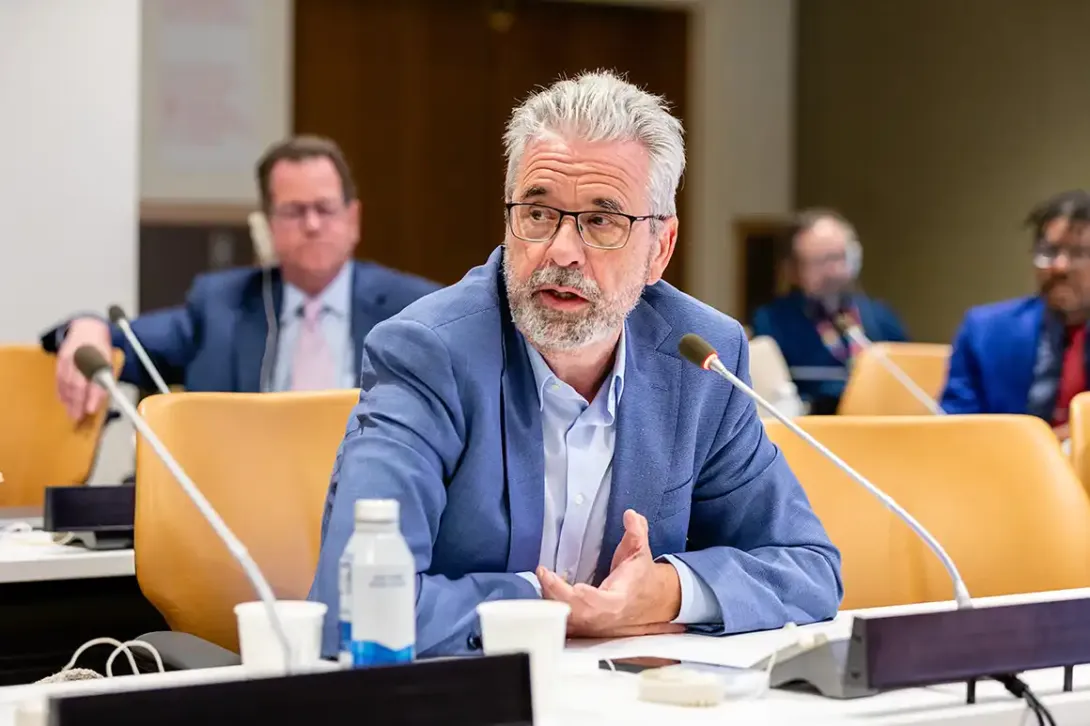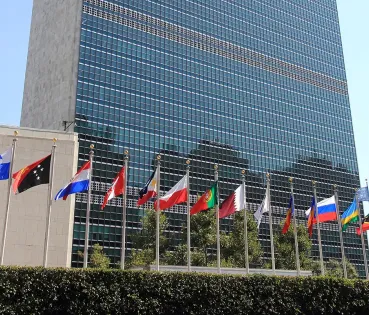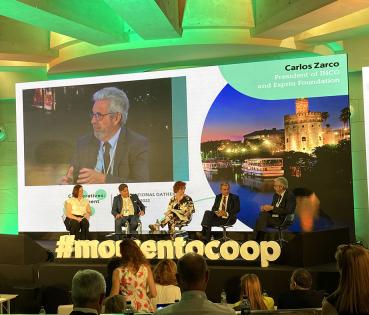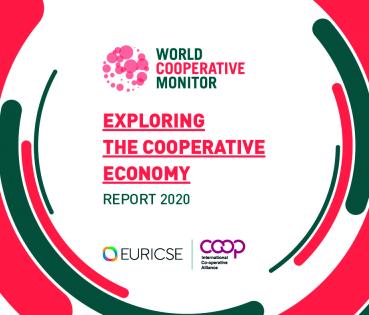
Carlos Zarco, Director of the Fundación Espriu
“Healthcare cooperatives are essential for reaching global access to healthcare”
Healthcare cooperativism allows healthcare to be organised that respects the rights of the patients and of the healthcare professionals. Its success is based on the close collaboration between both groups as a sustainable social value. For the Fundación Espriu, healthcare services are a basic right because society needs healthcare to be a quality service.
Last July they fired the starting gun for the next edition of the International Year of Cooperatives. What were the messages that were launched during the presentation event?
This preliminary launch was organised by the United Nations Committee for the Promotion and Advance of Cooperatives (COPAC), in collaboration with the Permanent Missions of Mongolia and Kenya. The official launch will be held during the World Cooperative Conference of the International Cooperative Alliance (ICA), programmed for November, in New Delhi, India.
At the opening session, we emphasised that this cooperative model itself means an economic transformation, from top to bottom, which has put cooperatives as one of the foundation pillars to promote economic transformation and reach our sustainable development goal. The Chairman of the ICA presented the slogan of the International Year of Cooperatives, “Cooperatives are building a better world.”
What responsibilities are you taking on when reaching the Sustainable Development Goals (SDG)?
Cooperatives are very important when achieving the SDGs on the 2030 agenda, as they are companies based on values that are building a better world. Thanks to their ideas, such as democracy and solidarity, and to their principles of inter-cooperation and concern about the community, they are well-positioned to reach these goals.
What are the future challenges?
The future of cooperatives will be unavoidably determined by the technological advances, the economic conditions or the social changes. Their capacity for innovation and adaptation to the new requirements is an instrument to take democracy, equality and sustainability to the workplace.
Innovation, sustainability, access to healthcare or to education… Without cooperatives is it possible to achieve this world?
According to data from the ICA and from B20, around 100 million households around the world have access to healthcare thanks to cooperatives. The presence of this business model has been confirmed in the healthcare systems of 76 countries, recording over 3,300 healthcare cooperatives with a global invoicing of 15,000 million dollars.
Amongst these figures are organisations of different origins and structures, but all of them share a common goal: to bring healthcare professionals and users closer together to conciliate the imbalances between healthcare offer and demand.
Healthcare cooperatives have shown their enormous capacity for adapting to new socio-economic contexts and highly different healthcare systems. This flexibility is due, to a large extent, to the fact that its governing model concentrates on the search for solutions to the needs of the people and of the society as a whole.
What is needed for the role of cooperatives to become better known?
Without any doubt, increasing its visibility. Events such as the International Year of Cooperatives are a loudspeaker to show that on a worldwide scale, they play a crucial role in the economy. According to data from the International Cooperative Alliance, over one thousand million people are linked to cooperatives, generating over 250 million jobs all over the world, in sectors as different as health, farming insurance or banking.
Within this context, which are the main values of the Fundación Espriu?
Promoting and developing healthcare cooperativism. We carry this activity out through activities such as the publication of the magazine Compartir; the organisation of events, the advisory and collaboration with organisations linked to the social economy and to healthcare cooperativism.
The organisations that make up the Fundación Espriu are non-profit making. In addition, the excess that may be generated are used for reinvestment, and all the interested parties taking part in the management involving all the agents in a supportive way. Finally, they are private organizations, but with an open nature and fully disposed to collaborate with the public health systems.
What main lines of action have been developed most in recent years?
Our goals are to promote, research and publicise cooperative management of healthcare, through the cooperative formula of organisation and self-management. This is based on a relationship of trust and proximity been doctors and patients. The healthcare professionals and the users of the services take part in the co-management of organisations centred on healthcare cooperativism. Additionally, the foundation promotes top quality healthcare, where the professionals can work with complete freedom.
Thanks to the co-management, the healthcare institutions belonging to the Fundación Espriu have obtained a management model in which a non-profit making organisation allows the financial revenue to be turned into social healthcare value through the reinvestment in new technologies, equipment and improvements in the installations.
How do you imagine the Fundación Espriu in 20 years’ time?
In an uncertain, vulnerable, complex and ambiguous setting it is difficult to have a clear idea of what it would be like, but I believe that it will continue innovating without destroying and it will incorporate new methodologies that help us to be prepared.
What do you value most from your work?
Without any doubt, the possibility of making the cooperative healthcare model grow and of inter-cooperating with the different health cooperatives. I was elected Chairman of the International Healthcare Cooperatives Organisation six years ago, and from that moment, we have been working to achieve that the member cooperatives have reached the historic record and that we are present on the five continents. I am convinced that we are essential for reaching access to healthcare on the entire planet.




